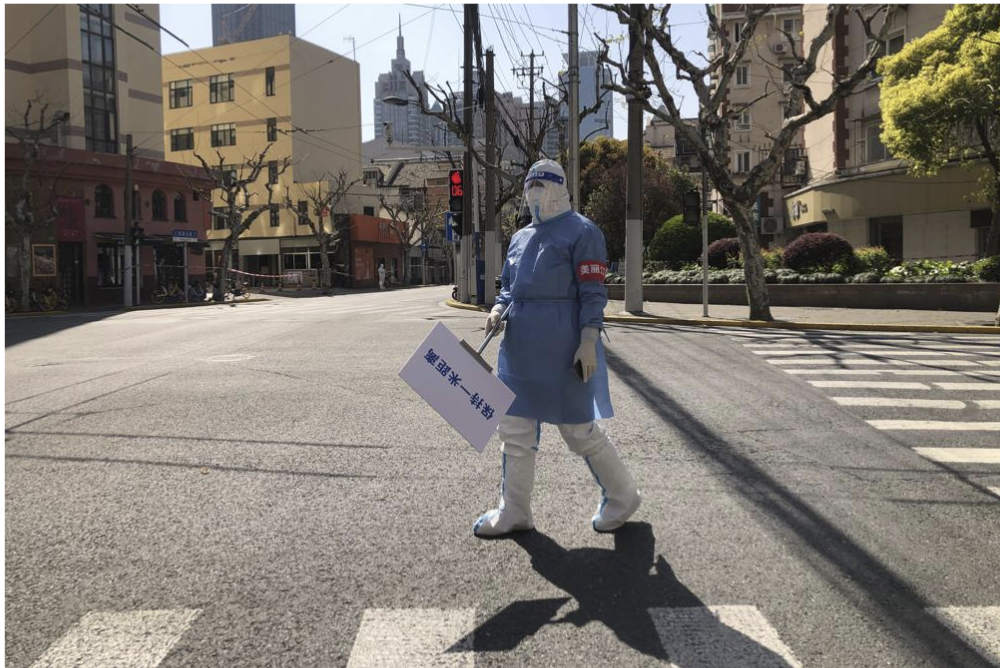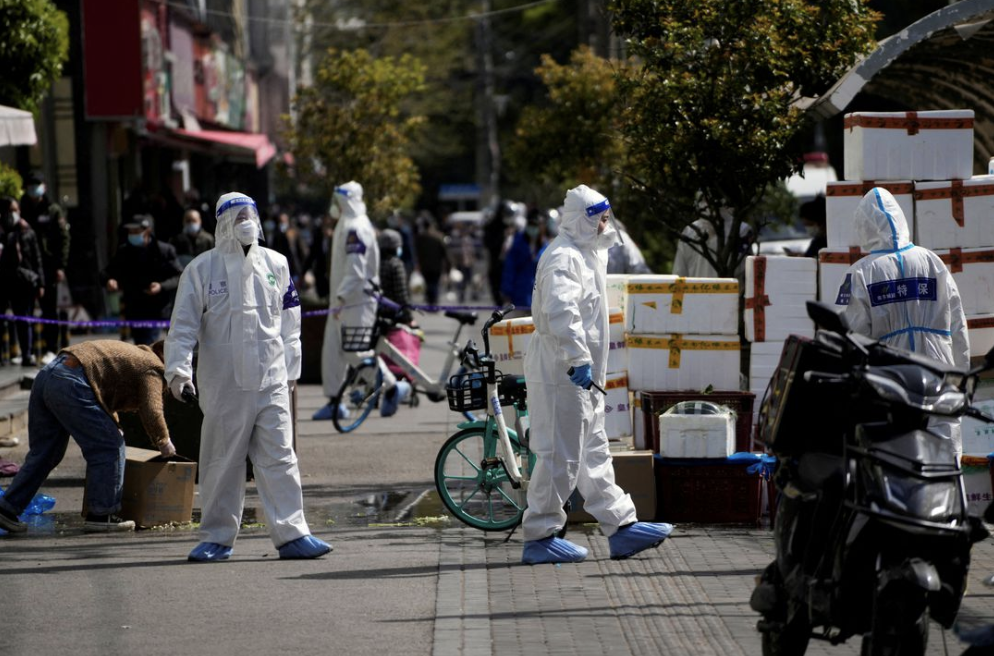Shanghai in Lockdown: How Long Will China’s No-COVID Policy Last?
A worker in protective gear holds a sign which reads "Keep one meter apart" along an empty street in a lockdown area in the Jingan district of western Shanghai, Monday, April 4, 2022. Photo: Chen Si via AP Photo
Since our article last week reporting on the recent Chinese lockdown, authorities have instituted several changes to the previously announced plan. After initially declaring a two-stage lockdown that was to culminate on April 3rd, officials have indefinitely continued the restrictions, stating “the city will continue to implement, seal, and control management and strictly implement ‘staying at home,’ except for medical treatment.”
This extension of the lockdown follows a monumental undertaking by the Chinese government to clamp down on the recent outbreak of the Omicron variant. Since March 28, Shanghai has converted hospitals, gymnasiums, and even the Shanghai New International Expo Center, which can hold 15,000 patients, into central quarantine sites.
Shanghai has also seen an extremely comprehensive COVID-19 testing process being implemented. On Sunday, officials ordered residents to sit through two more rounds of tests. First, residents were told to complete an antigen test at home. They were then given nucleic acid tests on Monday.
Since the lockdown, cases have continued to climb; On Sunday, 7,788 asymptomatic cases were reported, up from 6,501 the day before. Symptomatic cases also rose from 260 to 438.
Police and security members in protective suits stand next to cordoned off food stores following the COVID-19 outbreak in Shanghai, China March 29, 2022. Photo: Aly Song via Reuters
However, more impactful than the actual COVID-19 cases themselves are the social and economic impacts of the lockdown and its corresponding policies.
When the new lockdowns were instituted, officials instituted several hardline policies. Arguably the most controversial has been the quarantining of children who tested positive. Children in Shanghai that test positive while their parents test negative are removed from their parents’ custody and placed in pediatric quarantines.
However, the lack of communication, as well as the conditions of these centers, has been scrutinized by the Shanghai public. In a WeChat post made by a credible “rumor buster” account, four photos were published showing one of the quarantines, the Jinshan center.
One of the photos showed young children sitting in and standing around beds that were arranged neatly in two rows, though no adults were pictured. In another photo, a hazmat-suited person attends to a baby lying in a cot. Only one other adult, also in a hazmat suit, can be seen in the two other photos.
Despite criticism and concern about this policy, officials have defended the facilities. Wu Qianyu, an official from the Shanghai Municipal Health Commision, explained that "If the child is younger than seven years old, those children will receive treatment in a public health center."
Economically, the lockdowns have also thrown supply chains into chaos. Despite promises from Shanghai officials that “anyone with a negative test will be free,” container port volume has drastically fallen with the seven-day average throughput “now down 33% when compared to 12 March.” Additionally, cargo handling out of Shanghai Pudong Airport has become “almost impossible,” throwing yet another economic obstacle into the global economy.
An example of how these lockdowns have affected business comes from Tesla, the electric car manufacturer. Tesla’s Shanghai factory, a crucial export hub for the company’s Asian market, has notified workers and suppliers that it will remain closed despite hoping to reopen today.
If these social and economic strains continue to emerge as a result of China’s No-COVID strategy, there may be a drastic change in the CCP’s treatment of COVID-19 cases. However, until there is more significant pressure on Shanghai’s officials to drastically change their policy, deviation from the official stance is unlikely to happen.


